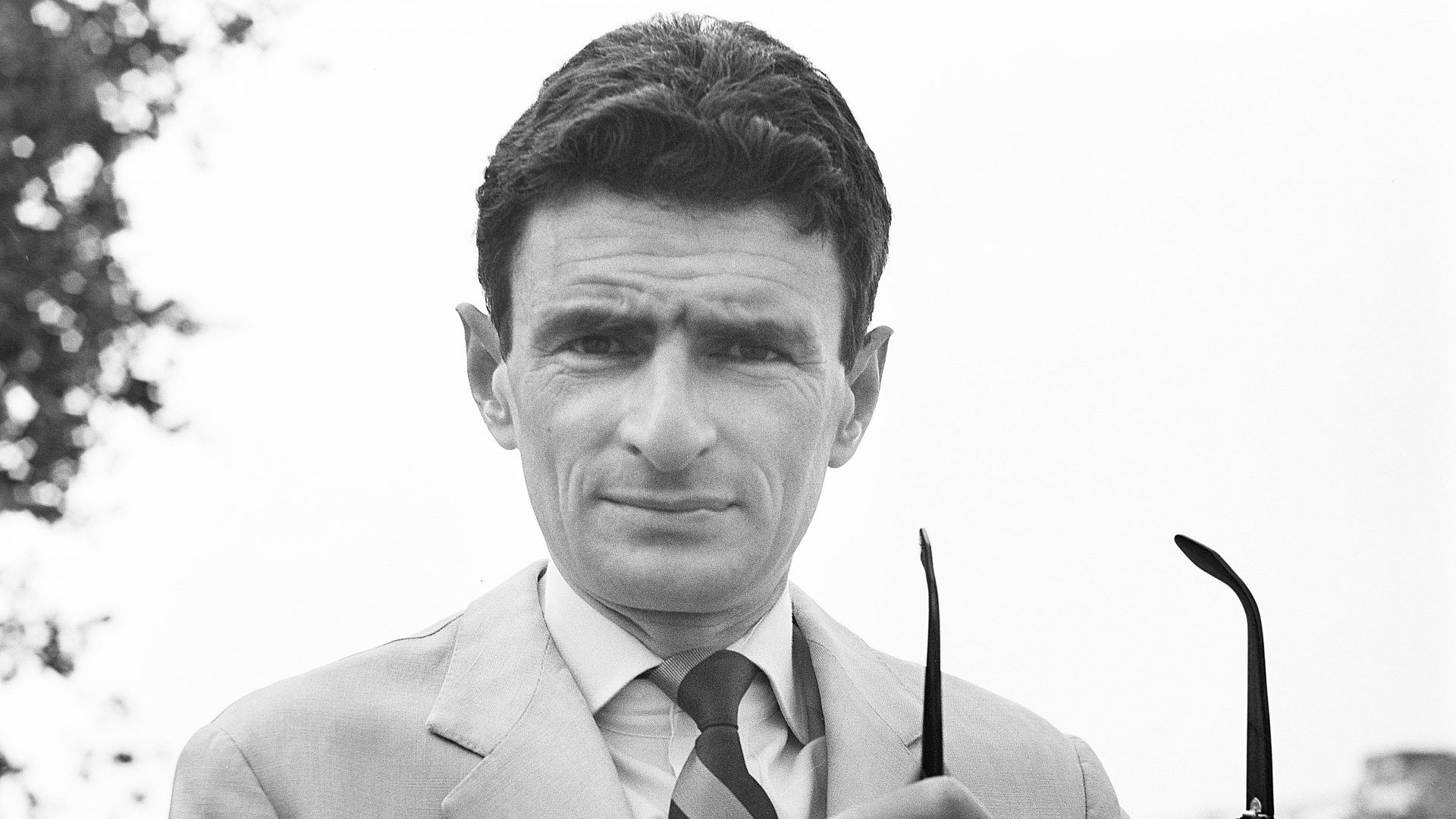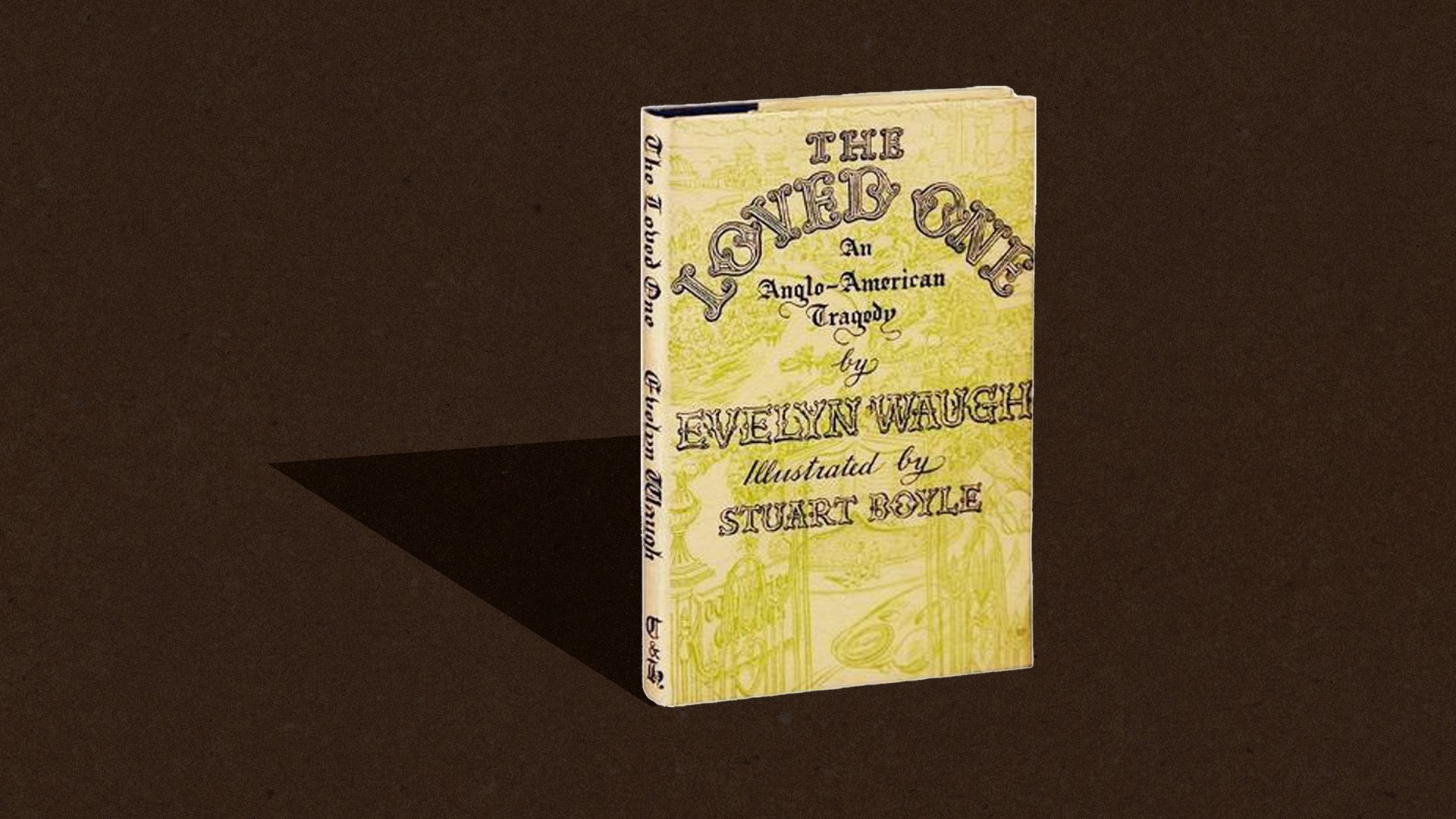Jerzy Kosiński had never received fan mail like it. The telegram contained six words (“Available my garden or outside it”) and a telephone number. The sender was listed as C Gardiner, who Kosiński knew quite well because he had created him.
Chance the Gardener, aka Chauncey Gardiner, was the naif whose love of horticulture and television spirited him to the White House in Kosiński’s latest novel Being There, which in the summer of 1971 had just become a New York Times bestseller. “So I rang,” recalled Kosiński, “and Peter Sellers answered”.
And so the strangeness began. “Peter said that I had invaded his life,” Kosiński said. “For the next seven and a half years, Peter Sellers became Chauncey Gardiner. The name on his calling card was Chauncey Gardiner, the name on his stationery was Chauncey Gardiner.
“I thought he was joking – here was an actor going after a novelist to try to get a movie made of a novel he liked. Then, one day, he stopped by my house and said: ‘You don’t understand. I AM Chauncey Gardiner!’”
What Peter Sellers certainly wasn’t in the early 1970s was a movie star big enough to get a film of Being There off the ground. There was some irony in the fact that, to play one moron, the actor was obliged to re-embrace another, Inspector Clouseau. A string of smash-hit Pink Panther sequels made Sellers bankable again by the decade’s end.
And all the while, the dialogue with Jerzy Kosiński continued, much to the author’s consternation. “Peter was a simplified man, almost a reductive man. No one knew anything about him. People assumed he was a brilliant actor who was also an intellectual. Well, he was a brilliant actor but he was extremely reductive.”
Then, as Hal Ashby bellowed “action!” on the first day of filming, the truth dawned on Jerzy Kosiński. “During the shooting of Being There, Peter Sellers – for the first time in his life – became himself. Being There was his spiritual portrait. For once, he did not have to pretend.”
By the time Being There reached cinemas – to decent box-office and considerable acclaim – Jerzy Kosiński had been “married” to Peter Sellers for almost eight years. As relationships go, it was longer than all but the first of the actor’s marriages. And like those unions, it ended in acrimony, with Kosiński forced to fight for a screen credit and the former Goon furious that the writer spilled the beans about his recent facelift.
A fractured relationship, a credit dispute, a wealth of lies and insults, but a beautiful end result – for all Peter Sellers might have insisted that Being There was a commentary on his life, it’s impossible to ignore the frightening resemblance between the making of the movie and the life of Jerzy Kosiński…
He was born Józef Lewinkopf in Łódź in 1933, adopting the name under which he’d become famous while living in rural Poland and posing as a Catholic while his parents prayed the townsfolk wouldn’t dob them in to the Nazis. Kosiński’s undeniably fraught childhood was the inspiration for his breakthrough novel, The Painted Bird (1965), in which the six-year-old protagonist is witness to and victim of acts of unspeakable cruelty. It brought him huge fame (he already had fortune, thanks to his marriage to socialite heiress Mary Hayward Weir).
But the reality of his childhood was not quite as traumatic as the novel suggested, and the film’s release brought the first wave of allegations against the writer. These would grow and come to encompass claims that he had fabricated a sponsorship to get a US visa (true), that his works had been written by someone else (false, but Kosiński did work with uncredited editors), that The Painted Bird had been written by Kosiński in Polish and then translated by another anonymous collaborator (true), that it and Being There had lifted some plot points from obscure Polish novels (possible), that his earlier non-fiction works had been sponsored by the CIA (false) and that he had lied about a near-miss with Charles Manson’s Family at Sharon Tate’s house (Kosiński had been invited, but was mistaken about the night when the murders took place).
The writer and his supporters claimed that, whatever white lies or co-opted stories might be contained within The Painted Bird, the novel as a whole deals with a truth as immense as it is incomprehensible. They have a point, and so did the reviewer of a biography of Kosiński who wrote: “Nice people who don’t tell lies are not likely to write great novels… The pain of using more directly the material he really knew may have been too great for him to bear.”
What is also undeniable is that however his works might have been assembled and whatever dissembling he did when talking about his life, Jerzy Kosiński was a master storyteller.
He was also a celebrity who relished his status, and his friendships with the likes of George Harrison, Henry Kissinger, Tony Bennett and Warren Beatty, who cast him as the Stalinist Grigory Zinoviev in Reds. His fame was fuelled by a willingness to go on The Tonight Show or David Letterman to discuss his work, or his loathing for Poland’s communist regime, or talk about his other enthusiasms – among them polo, alpine skiing, photography and sadomasochism.
“I like to watch” – it’s a line that crops up almost as often in Being There as it does in Jerzy’s interviews. He was a regular visitor to the sex clubs of Manhattan, though Kosiński’s second wife Kiki was always quick to point out that he did so with her blessing. In fact, she described one of Kosiński’s “companions” – “Cynthia” – as “wonderful”.
“I really go there to write,” he told a baffled David Letterman, who promptly asked him where he kept his pencil. These kinds of exchanges kept Kosiński in the spotlight, which made it easier for his opponents – including the Polish government and fellow travellers – to hand out the rocks to be thrown at him.
One gets the impression Kosiński threw himself at life to avoid being pinned down or being overwhelmed by the events of his past. Little wonder too that he became exhausted. With his health, his reputation, even sexual appetite slipping from his grasp, it’s tempting to suggest that his suicide in May 1991 as an act of submission in the face of diminishing returns. As the note he addressed to Kiki demonstrates all too clearly, Jerzy Kosiński’s gift for writing remained with him until his last breath:
“Kiki… you are the prime victim of my decrepitude and you are the very last person I would want to hurt now or ever… Embrace our friends and remember that, no matter what ever crossed your mind at times, you and only you mattered as much to me as did my life.”
That line – that last line – bears a close resemblance to words Kosiński wrote in Being There. A man who had to face down various accusations of plagiarism, his last act was to plagiarise himself – a final two-fingered salute to a world that never understood how Jerzy Kosiński understood the world.



